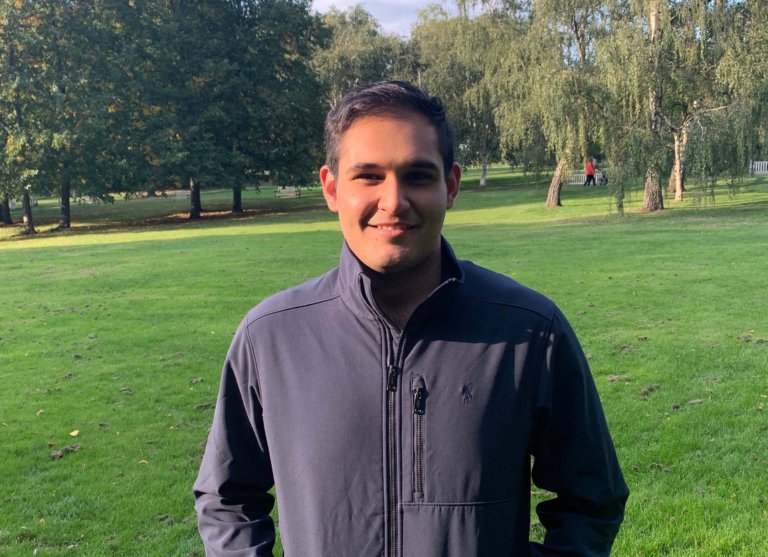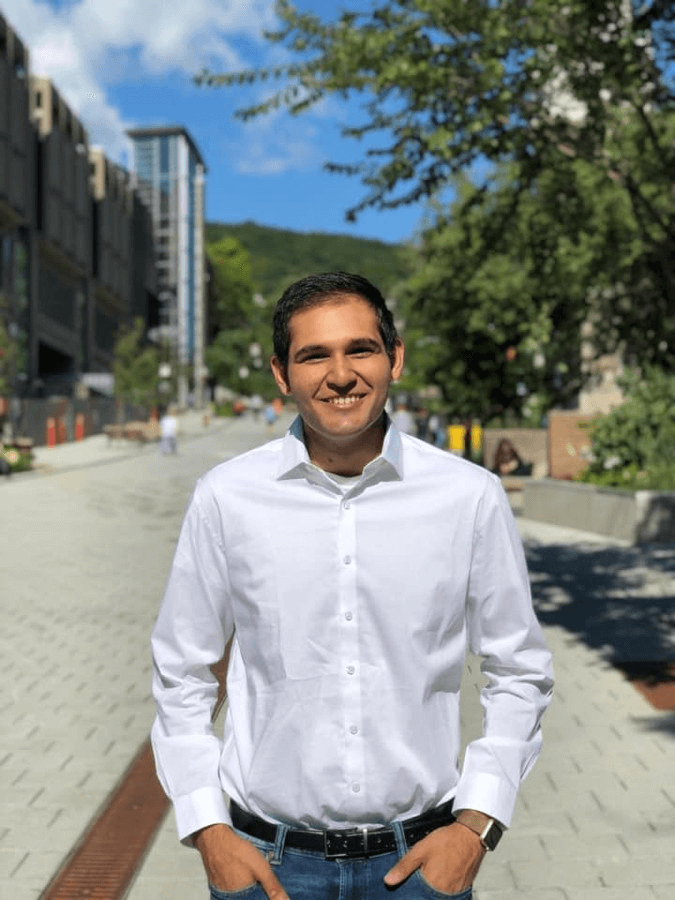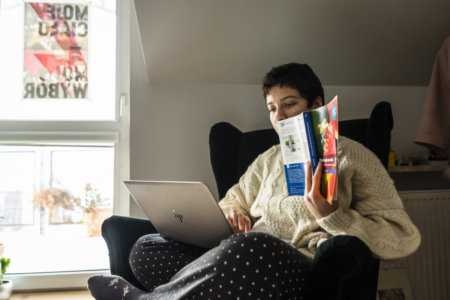
In 2020, Ashar Yahya graduated from McGill University with an Honours degree in Economics and Finance. His next step? Pursuing an MSc in Finance at one of the UK’s most prestigious universities: Imperial College Business School in London.
“I wanted to learn more about the subject and gain knowledge that would ultimately help me in my future job. I chose an MSc in Finance as it focused on application, as opposed to economics which would be more theoretical,” he tells us.
He plans to use this MSc in Finance to complement the string of internships he has already completed: Pepsi Dubai in 2018, Kellogg’s (global headquarters) in 2019 and Hello Alice in 2020. Below we speak to him about his experience in the UK as an MSc in Finance student and what life’s like in the UK:
Why did you choose to pursue your MSc in Finance at Imperial College Business School?
Imperial College Business School is one of the most quantitative unis in the world, with a focus on science and engineering. Many people refer to it as the MIT of the UK. I would like to work in quantitative finance, so Imperial’s programme offered the ability to take many quant courses — like Machine Learning for Finance — and coding programmes that I wouldn’t have had the chance to anywhere else.
Secondly, Imperial’s MSc in Finance was the top-ranked programme in the UK and Imperial College Business School itself is within the top ten global unis. Finally, the student to faculty ratio is quite low, so it gives me a lot of one-on-one time with professors to learn from their experiences.

His internship experience include working at: Pepsi Dubai in 2018, Kellogg’s (global headquarters) in 2019 and Hello Alice in 2020. Source: Ashar Yahya
Do you think it would have made a difference if you studied at a local institution?
While I had the chance to stay and pursue a master’s degree at McGill University and even received an entrance scholarship, I decided that the programme at Imperial College London was better suited.
Moreover, London is a global financial hub, and the recent changes to student visa laws in the wake of Brexit means I can work in the UK for up to two years without getting an employer to sponsor me. If I had stayed in Canada, it would’ve been a continuation of my experience of the past three years. I wanted a change.
Tell us about your uni experience at McGill University, how does it differ to Imperial College London?
Since I’m Canadian with a US dual citizenship, I wasn’t considered an international student there so life was logistically easier. While the process was quite easy for getting a student visa for the UK, opening a bank account wasn’t as straightforward!
As for the academic experience, school in Canada differs from the UK as the grading system is different. Personally, I found McGill University to be less academically challenging than Imperial College Business School, but I found that my social experience in Canada to be more abundant.
What has been your most memorable class thus far?
I really enjoyed the Investments and Portfolio Management class, mainly because it was very applicable and the examples used were up to date. I also have my own personal portfolio of stocks and sometimes class-based discussions helped me learn about securities I wasn’t aware of before which ended with me investing in some of them.
The class built up really nicely on some of the undergrad content that I learnt at McGill, so it was a nice stepping stone into more advanced and complex topics within investment management.
Do you get to apply the theories you gained in lecture halls and classrooms to the real world?
I was chosen as the senior analyst for the Imperial College Business School Student Investment Fund. The fund has 100,000 pounds for assets under management, and I lead a team of seven analysts in the consumer division.
I guided these analysts by conducting financial analysis to compare current stock prices to what their implied fair value should be and then present these findings to the board of the fund as a stock pitch.
The stock pitch was a great experience last term, some of the panellists who asked me questions were professionals from companies such as Goldman Sachs, JP Morgan and BAML. It was great to interact with them and get their feedback on our pitches.
What plans do you have with your degree after graduating?
I would like to pursue a second master’s. Since I graduated a year early, it would make sense timewise. The reason I want to do a second master’s is to complement my MSc in Finance with an even more quantitative degree such as business analytics or data science.
Being a US citizen, I would like to go to the US and get my degree from there which would mean that I would have a degree potentially from there to add to the ones I have from Canada and the UK. I already hold an offer for next year from an Ivy League uni in the US, and am waiting to hear back from a few others in the upcoming weeks.
Walk us through your internship experiences. What were some of the challenges you faced and how did you overcome them?
At Pepsi, I interned in the finance department which was quite exciting since at that same time, the Dubai government introduced VAT and specific taxes on soft drinks. As a financial analyst intern, it was interesting to see the effect this had on sales of soft drinks in the region.
At Kellog’s, I interned in the Data Science department at the Global HQ in Battle Creek Michigan — I really enjoyed that experience. Staying in the very rural part of the US was quite a change from anywhere I’ve lived before — somewhat surprisingly fun.
Lastly, this past summer, I interned at an AI startup called Hello Alice which was meant to be in San Francisco, but due to the pandemic we shifted to a remote internship. The company was really cool, they helped small businesses gain access to resources for free, and particularly focused on helping small businesses by minorities or underrepresented backgrounds.
I had a lot of time to work directly with one of the founders — Elizabeth Gore — and it was inspiring to learn how her business partners and her started the company. Additionally getting to know how much Hello Alice has grown in helping thousands of small businesses across the US.
At the time, this company was also providing grants to businesses to help them with cash flow due to COVID-19, and seeing some of the videos where the SMB owners expressed their gratitude was a great thing to see.











